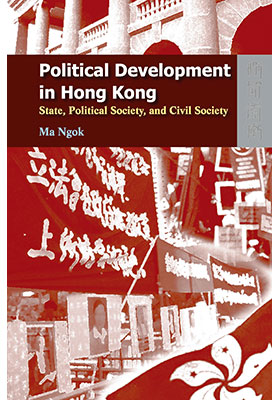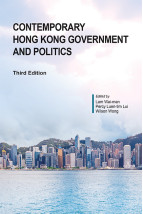Political Development in Hong Kong
State, Political Society, and Civil Society
(香港政治發展:國家、政治社會與公民社會)
ISBN : 978-962-209-810-7
January 2007
318 pages, 6″ x 9″
- HK$195.00
Ebooks
This book reviews the political development of Hong Kong before and after 1997, in particular the evolution of state-society relations in the last two decades, to analyze the slow development of democracy and governance in Hong Kong after 1997.
This book is a most comprehensive analysis of the multi-faceted changes in Hong Kong in the last 20 years. The scope of changes analyzed included state functions and institutions, political changes such as party development and development of the Legislative Council, and social changes such as social movements, civil liberties, etc. It helps the reader understand the crisis of governance of Hong Kong after 1997, and the difficulty of democratic development in Hong Kong over the years.
The book covers: changing state institutions in Hong Kong in the last few decades; party development in Hong Kong; the changing role and function of the legislature in Hong Kong; the evolution of social movement and movement organizational forms; media freedom, civil liberties, and the role of civil society; and theoretical discussions concerning governance problems and state-society relations in Hong Kong. Special emphasis is placed on how these changes brought about a new state-society relation, which in turn brought governance difficulties after 1997.
“Comprehensive, perceptive, and critical, this book is essential reading for anyone interested in Hong Kong politics before and after 1997 and political development and state-society relations in general. Ma Ngok forcefully explains the source of governance crisis and the slow growth of democracy in post-1997 Hong Kong. He argues that the crux of the matter lies in the underdevelopment of political society. This is both a well written work on Hong Kong society and a useful reference for undergraduates and research students in political science, sociology and development studies.” —Professor Lui Tai-lok, Department of Sociology, Chinese University of Hong Kong




